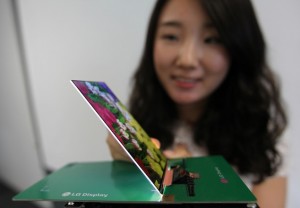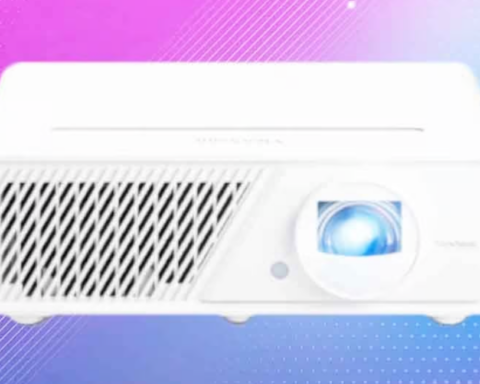 The panel measures 5.2-inch and will enable smartphone makers to offer thinner full-HD smartphones and larger visible display space on them. The panel is 2.2mm thin and comes with a 2.3mm bezel. The company claims that its new panel is both slimmest and narrowest among existing full-HD LCD panels designed for mobile devices. Additionally, LG says the panel will make devices easier to grip as well as it’s lighter in weight.
The panel measures 5.2-inch and will enable smartphone makers to offer thinner full-HD smartphones and larger visible display space on them. The panel is 2.2mm thin and comes with a 2.3mm bezel. The company claims that its new panel is both slimmest and narrowest among existing full-HD LCD panels designed for mobile devices. Additionally, LG says the panel will make devices easier to grip as well as it’s lighter in weight.
“Today’s introduction of the world’s slimmest full-HD LCD panel represents an exciting advancement for the high-end smartphone segment, and is possible due to our world-class expertise in IPS and touch technologies,” said Dr. Byeong-Koo Kim, Vice President and Head of LG Display’s IT and Mobile Development Group. “LG Display will continue its commitment to developing products that maximise consumer value as well as opening new doors for the mobile and tablet PC industry.”
It’s likely that LG is using the same panel in its upcoming flagship smartphone LG Optimus G2 which was recently spotted in leaked pictures and video. The phone is expected to feature a 5.2-inch full-HD panel and a super thin bezel. Even the volume rocker and power buttons are said to be located at the back of the phone due to this reason.
LG has used the Advanced One-Glass-Solution (OGS) technology in the panel, which it says has been deployed for the first time. The company informs that dual Flexible Printed Circuits, which are superior to a single circuit, have been inserted between the panel and touch film, reducing the number of lines on the panel by more than 30 percent. It has also used a direct bonding system which it calls Optical Clear Resin between the panel and touch film allowing the display to offer more brightness. The display panel delivers a brightness of 535 nits at maximum, which is more than what other full-HD panels deliver at this point in time, as per the company.
It says the panel’s superiority in terms of resolution, brightness, and contrast ratio results in enhanced outdoor readability.
The contrast offered by the display in real-life surroundings with Ambient Contrast Ratio gives a reading of 3.74:1 based on 10,000 lux, which according to LG, indicates that the display will perform well even in strong outdoor sunlight conditions. The certification is based on the firm Intertek’s testing.
The move certainly signals that high-end smartphones of the future will be thinner and have bigger displays.








